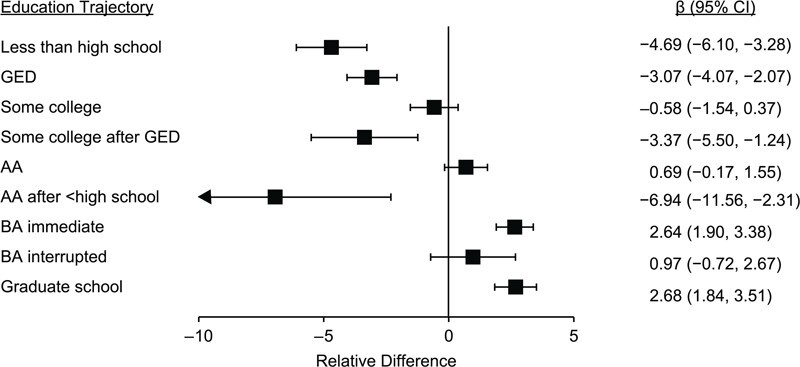Figure 3.

Coefficient plots for the association between educational trajectories from ages 14 to 48 years and physical health at age 50 years compared with respondents who completed high school only in the National Longitudinal Survey of Youth 1979 cohort (1979–2016). Overall, physical health was patterned such that higher educational attainment predicted better health. Physical health varied by type of educational credential such that GED credentials did not confer the same health benefits as a high school diploma. Physical health varied by trajectory to final credential such that those who followed most some college trajectories had better physical health than those who received some college after a GED credential; similarly, those who followed most AA trajectories had better physical health than those who received an AA after less than a high school education. Physical health also varied by timing of educational attainment such that those who received a BA immediately had better physical health at age 50 years than those whose BA trajectory was interrupted. Results are adjusted for birth cohort, race, birth in a southern state, birth outside the United States, rural residence at age 14 years, parental education, if parents worked for pay, and parental occupation. AA, associate’s degree; BA, bachelor’s degree; CI, confidence interval; GED, general educational development.
